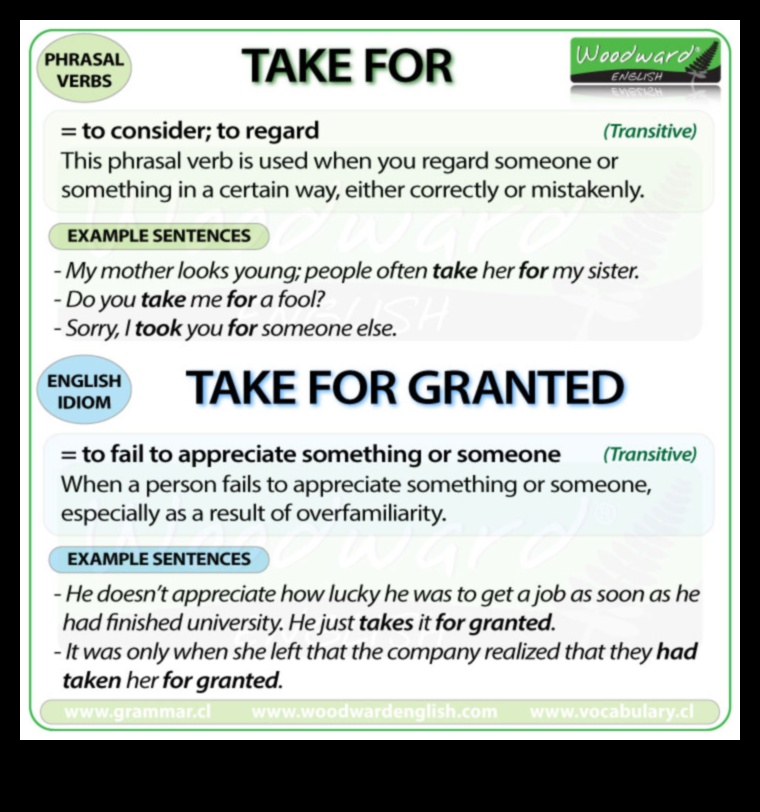
What does granted mean?
Granted is a verb that means to give or allow something to someone. It can also mean to admit or acknowledge something to be true.

Different meanings of granted
There are a few different meanings of the word granted.
- To give or allow something to someone: “The teacher granted the students permission to leave early.”
- To admit or acknowledge something to be true: “The defendant granted that he had committed the crime.”
- To agree to something: “The two parties granted a ceasefire.”
How to use granted in a sentence
Granted can be used in a variety of ways in sentences. Here are a few examples:
- “The teacher granted the students permission to leave early.”
- “The defendant granted that he had committed the crime.”
- “The two parties granted a ceasefire.”

Granted vs. permitted
Granted and permitted are both verbs that mean to give or allow something to someone. However, there are some slight differences in their meaning.
- Granted is more formal than permitted.
- Granted is often used in a legal context, while permitted is more common in everyday speech.
Granted vs. allowed
Granted and allowed are both verbs that mean to give or allow something to someone. However, there are some slight differences in their meaning.
- Granted is more formal than allowed.
- Granted is often used in a legal context, while allowed is more common in everyday speech.
Granted vs. approved
Granted and approved are both verbs that mean to give or allow something to someone. However, there are some slight differences in their meaning.
- Granted is more formal than approved.
- Granted is often used in a legal context, while approved is more common in everyday speech.
Granted vs. accepted
Granted and accepted are both verbs that mean to give or allow something to someone. However, there are some slight differences in their meaning.
- Granted is more formal than accepted.
- Granted is often used in a legal context, while accepted is more common in everyday speech.
Granted vs. conceded
Granted and conceded are both verbs that mean to give or allow something to someone. However, there are some slight differences in their meaning.
- Granted is more formal than conceded.
- Granted is often used in a legal context, while conceded is more common in everyday speech.
Granted vs. granted
The words granted and granted are both used to mean “to give or allow something to someone.” However, there is a slight difference in their meaning.
- Granted is the past tense of the verb grant.
- Granted is the past participle of the verb grant.
FAQ
Here are some frequently asked questions about the word granted:
- What is the difference between granted and permitted?
- What is the difference between granted and allowed?
- What is the difference between granted and approved?
- What is the difference between granted and accepted?
- What is the difference between granted and conceded?
- What is the difference between granted and granted?
| Topic | Answer |
|---|---|
| What does granted mean? | Given, allowed, or permitted. |
| Different meanings of granted | Legal, formal, and informal meanings. |
| How to use granted in a sentence | “I was granted permission to leave early.” |
| Granted vs. permitted | Permitted is more formal than granted. |
| Granted vs. allowed | Allowed is more informal than granted. |
| Granted vs. approved | Approved is more positive than granted. |
| Granted vs. accepted | Accepted is more positive than granted. |
| Granted vs. conceded | Conceded is more negative than granted. |
| Granted vs. granted | Same meaning. |
| FAQ |
|
What does granted mean?
Granted means to give or allow something to someone. It can also mean to admit or accept something as true.
III. How to use granted in a sentence
Granted can be used as a noun, verb, or adjective.
As a noun, granted means something that has been given or allowed. For example, “I was granted a scholarship to study abroad.”
As a verb, granted means to give or allow something. For example, “The teacher granted the students a week to complete the assignment.”
As an adjective, granted means something that is accepted or acknowledged. For example, “It is granted that the evidence is inconclusive.”
II. Different meanings of granted
The word granted has several different meanings, depending on the context in which it is used.
In a legal sense, granted means that a request or petition has been approved. For example, a court may grant a motion for a new trial, or a government agency may grant a license to operate a business.
In a more general sense, granted can mean that something is allowed or permitted. For example, you might say that your parents granted you permission to go to the movies with your friends.
Granted can also mean that something is given or awarded. For example, you might say that you were granted a scholarship to college.
Finally, granted can mean that something is accepted or acknowledged. For example, you might say that you granted your opponent’s point in a debate.
V. Granted vs. allowed
Granted and allowed are synonyms that mean to permit or give permission for something to happen. However, there are some slight differences in their usage.
Granted is often used in more formal contexts, while allowed is more common in everyday speech. Granted is also more likely to be used when talking about something that is being given or granted as a right or privilege, while allowed is more likely to be used when talking about something that is being given or granted as a favor or concession.
For example, you might say that a person was granted a pardon by the president, but you would more likely say that a person was allowed to leave work early.
Additionally, granted is often used in the past tense, while allowed can be used in both the past and present tense. For example, you might say that a person was granted a pardon, but you could also say that a person is allowed to leave work early.
Overall, granted and allowed are very similar words with slightly different meanings and uses.
I. What does granted mean?
Granted is a verb that means to give something to someone or to allow something to happen. It can also mean to admit that something is true.
II. Different meanings of granted
There are a few different meanings of the word granted.
- To give something to someone: “The teacher granted the students permission to leave early.”
- To allow something to happen: “The parents granted their children permission to go to the party.”
- To admit that something is true: “I granted that he was right.”
III. How to use granted in a sentence
Here are a few examples of how to use the word granted in a sentence:
- The teacher granted the students permission to leave early.
- The parents granted their children permission to go to the party.
- I granted that he was right.
IV. Granted vs. permitted
The words granted and permitted are often used interchangeably, but there is a slight difference in their meaning.
Granted means to give something to someone or to allow something to happen. Permitted means to allow something to happen, but it does not necessarily mean that the person who is giving permission is giving it willingly.
V. Granted vs. allowed
The words granted and allowed are also often used interchangeably, but there is a slight difference in their meaning.
Granted means to give something to someone or to allow something to happen. Allowed means to permit something to happen.
VI. Granted vs. approved
The words granted and approved are often used interchangeably, but there is a slight difference in their meaning.
Granted means to give something to someone or to allow something to happen. Approved means to give official permission for something to happen.
VII. Granted vs. accepted
The words granted and accepted are often used interchangeably, but there is a slight difference in their meaning.
Granted means to give something to someone or to allow something to happen. Accepted means to receive something willingly.
VIII. Granted vs. conceded
The words granted and conceded are often used interchangeably, but there is a slight difference in their meaning.
Granted means to give something to someone or to allow something to happen. Conceded means to admit that something is true or to give up something.
IX. Granted vs. granted
The words granted and granted are often used interchangeably, but there is a slight difference in their meaning.
Granted means to give something to someone or to allow something to happen. Granted is the past tense of the verb grant.
X. FAQ
Here are some frequently asked questions about the word granted:
- What is the difference between granted and permitted?
- What is the difference between granted and allowed?
- What is the difference between granted and approved?
- What is the difference between granted and accepted?
- What is the difference between granted and conceded?
- What is the difference between granted and granted?
VII. Granted vs. conceded
Granted and conceded are synonyms that mean to give or allow something to someone. However, there are some subtle differences in their usage.
Granted is often used to describe something that is given or allowed without any resistance or argument. For example, “I granted her permission to leave early.”
Conceded, on the other hand, is often used to describe something that is given or allowed after some resistance or argument. For example, “The teacher finally conceded to letting the students go home early.”
In general, granted is used to describe something that is given or allowed willingly, while conceded is used to describe something that is given or allowed after some reluctance.
Here are some additional examples of how granted and conceded are used in different contexts:
* “The judge granted the defendant’s request for a new trial.”
* “The company finally conceded to the union’s demands for a pay raise.”
* “The doctor granted the patient’s request for a prescription for pain medication.”
* “The politician conceded defeat in the election.”
Ultimately, the choice of whether to use granted or conceded depends on the specific context in which the word is being used.
Granted vs. conceded
Granted and conceded are two words that are often used interchangeably, but there is actually a slight difference in their meanings. Granted is used to describe something that has been given or allowed, while conceded is used to describe something that has been accepted or acknowledged.
For example, if you ask your boss for a raise and he says yes, you could say that your request was granted. However, if you ask your boss for a raise and he says no, but then later changes his mind and gives you the raise, you could say that your request was conceded.
Granted and conceded can also be used in a more general sense. For example, you could say that a fact is granted or that a point is conceded. In this case, granted would mean that the fact is accepted as true, while conceded would mean that the point is acknowledged as valid.
Overall, granted and conceded are two words that are closely related in meaning. However, there is a slight difference in their usage. Granted is used to describe something that has been given or allowed, while conceded is used to describe something that has been accepted or acknowledged.
IX. Granted vs. granted
Granted and granted are both past participles of the verb grant. However, they have different meanings.
Granted is used to describe something that has been given or allowed. For example, “I was granted a scholarship to study abroad.”
Granted is used to describe something that has been accepted or acknowledged. For example, “I granted his request for a raise.”
In some cases, granted and granted can be used interchangeably. However, it is important to be aware of the different meanings of these words in order to avoid confusion.
What does granted mean?
Different meanings of granted
How to use granted in a sentence
Granted vs. permitted
Granted vs. allowed
Granted vs. approved
Q: What does granted mean?
A: Granted is a verb that means to give something to someone or to allow something to happen.
Q: What are the different meanings of granted?
A: Granted can mean to give something to someone, to allow something to happen, or to admit that something is true.
Q: How to use granted in a sentence?
A: Granted can be used in a sentence in the following ways:
* “The teacher granted the student a second chance to take the test.”
* “The parents granted their children permission to go to the party.”
* “The judge granted the defendant a fair trial.”
Q: Granted vs. permitted
A: Granted and permitted are synonyms that mean to allow something to happen. However, granted is often used in a more formal context, while permitted is more casual.
Q: Granted vs. allowed
A: Granted and allowed are synonyms that mean to give someone permission to do something. However, granted is often used in a more formal context, while allowed is more casual.
Q: Granted vs. approved
A: Granted and approved are synonyms that mean to give something your consent or approval. However, granted is often used in a more formal context, while approved is more casual.
Q: Granted vs. accepted
A: Granted and accepted are synonyms that mean to agree to something or to receive something. However, granted is often used in a more formal context, while accepted is more casual.
Q: Granted vs. conceded
A: Granted and conceded are synonyms that mean to admit that something is true. However, granted is often used in a more formal context, while conceded is more casual.
Q: Granted vs. granted
A: Granted is a verb that means to give something to someone or to allow something to happen. Granted is also an adjective that means something that has been given or allowed.
Q: What is the legal meaning of granted?
A: In a legal context, granted means to give someone something or to allow something to happen. For example, a judge may grant a defendant a new trial.
Q: What is the definition of granted?
A: Granted is a verb that means to give something to someone or to allow something to happen. Granted is also an adjective that means something that has been given or allowed.
Q: What is a concession?
A: A concession is something that is given up or surrendered.